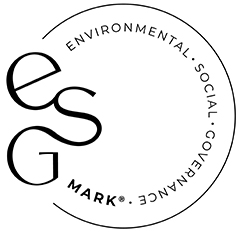Welcome to the August edition of our monthly VAT update, including a selection of news and updates relating to the world of VAT.
Carbon negative
The taxpayer was a VAT group. A member of that group traded in carbon credits back in the day when they were subject to ‘standard’ VAT process. The trader was involved, unknowingly, in a VAT fraud chain (which is why the credits are now subject to the domestic reverse charge mechanism). They received purchase invoices from another trader and reclaimed the VAT, a sum in excess of £5 million. However, the invoices did not show a VAT number of the seller nor where they addressed to the correct trading company. HMRC disallowed the input tax.
The taxpayer appealed, all the way up to the Court of Appeal, that they were entitled to reclaim the VAT, as entitlement of right, or that HMRC was acting unlawfully in disallowing the claim.
The Court of Appeal agreed with the previous tribunal judgements - where the invoice does not contain the information required by law, or contains an error that cannot be corrected the input tax is not claimable. The latter point was very relevant as it transpired that the supplier was not VAT registered and had charged VAT unlawfully so could not provide the missing VAT number. It also pointed out that the taxpayer had failed to make basic due diligence checks on the supplier, and that to grant an exception would lead to a loss of revenue, as there was no corresponding output tax.
So, if the purchase invoice you receive is incorrect, get the supplier to amend, preferably before you make payment (so you have some leverage).
They mean business
At first view this case appears to illustrate HMRC’s determination to ensure that the Relevant Charitable Purpose (RCP) relief is not applied except in the most unique of circumstances; but is also reflects on how a proper understanding of the law is vital.
The taxpayer was a charity established in the late 19th Century. In 1907, it built a property called Church House, which it used as village hall amenity. There had been some limited works in the 1970s, so by 2011 the property was not fit for purpose failing several health and safety criteria, as well as being inaccessible for the disabled.
Funds were raised and the building underwent a major refurbishment. The taxpayer set up a trading body (not a charity) and then zero-rated the lease to that associate body as the initial grant of a major interest, resulting in a significant repayment of VAT. HMRC disallowed the input tax claim on the basis that the lease wasn’t zero-rated and, without an option to tax, defaulted to being exempt.
The first question you may have is: 'why was this seen as an initial grant of a major interest?' Well, since 1907 the taxpayer had let the property to local clubs and associations on an hourly basis, not a major interest. So although 108 years had passed from construction to the granting of the 21+ year lease to the trading associate, it was still the initial grant.
The problem was that the associated trading business was set up with the intention of letting the property on behalf of the charity. However, the paperwork pointed to a linear chain of the charity leasing the property to the trading associate for a period of over 21 years and the trading associate then making lets to end users.
The certification required for a grantor to zero-rate such a grant requires that the body leasing the property warrants it is a charity and that it will use the property either for non-business purposes or as a village hall.
The trading associate was not a charity so could not have legally issued the certificate. The tribunal went on to determine that the village hall aspect was not achieved either by referring to the fact that users included local businesses for meetings, and the church for a parish office. It also said that even though the hire of the property was only advertised locally it did not 'prevent or prohibit bookings being made outside the local community'.
This seems to indicate that the internet means that nothing is local anymore.
They do not mean business
HMRC has recently 'simplified' its business test from a six-step to two-step test. It may take some time for the true impact of this new test to show itself, but the initial view is that this is a formal nail in the coffin of the RCP relief. Charitable organisations or those not run for profit should review how this new approach could affect them.
Fiddling about the roof
In 2020, a case was heard about the VAT liability of a product designed to address the issues of conservatories (too hot in the summer, too cold in the winter).
The First-tier ruled that the product was standard rated rather than a 5% energy saving material. However, an Upper Tribunal has referred the case back to the First-tier for 'review' as it was seen to have accepted all of HMRC’s submissions but none of the taxpayer. This was an error of law.
Who you gonna call?
Netbusters operates football and netball leagues across London. HMRC asserted that the supply was a standard rated one where the league management was the key element. The First-tier Tribunal ruled that as 12.5% of costs related to league management, the main (and deciding supply) was that of exempt property (hire of the pitches/courts). HMRC appealed to the Upper Tribunal and lost again. The ruling seems to add further layers of complexity to determining what constitutes a letting activity. Couple this with HMRC’s apparent determination to see most lettings as a supply of standard rated facilities, and businesses making such supplies would be recommended to seek professional advice as to what the challenges to the current VAT treatment could be.
Postponed import VAT
Many importers make use of the Postponed Import VAT Accounting (PIVA) scheme, where the import VAT is an accounting entry on the relevant VAT return, rather than an actual payment and subsequent claim. HMRC has announced that the statements for June 2022 produced before 13 July are incorrect and corrective ones have now been issued to replace the earlier figures.
Importers should also note that, from 1 October 2022, all imports will have to be declared through CDS, as after 30+ years of service CHIEF is being shut down (exports will become wholly CDS from 31 March 2023).
This article is from the latest issue of our VAT newsletter. To receive future copies of any of our newsletters directly to your inbox, please visit our preference centre to register your interest.
If you have any questions about the above, or would like more information specific to your circumstances, please enter your email address below and we will get in touch:













